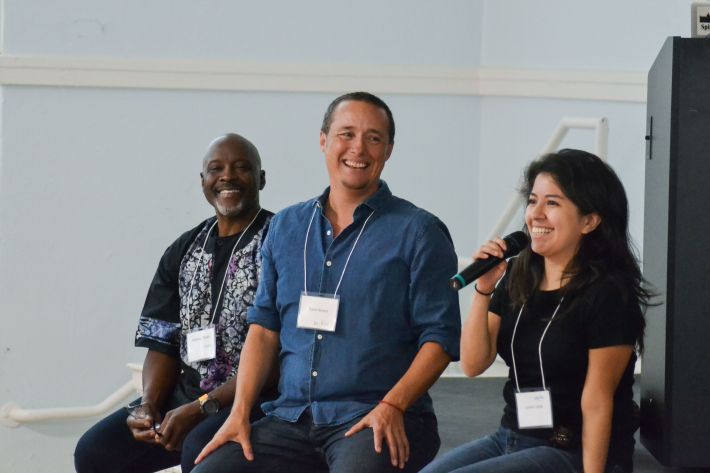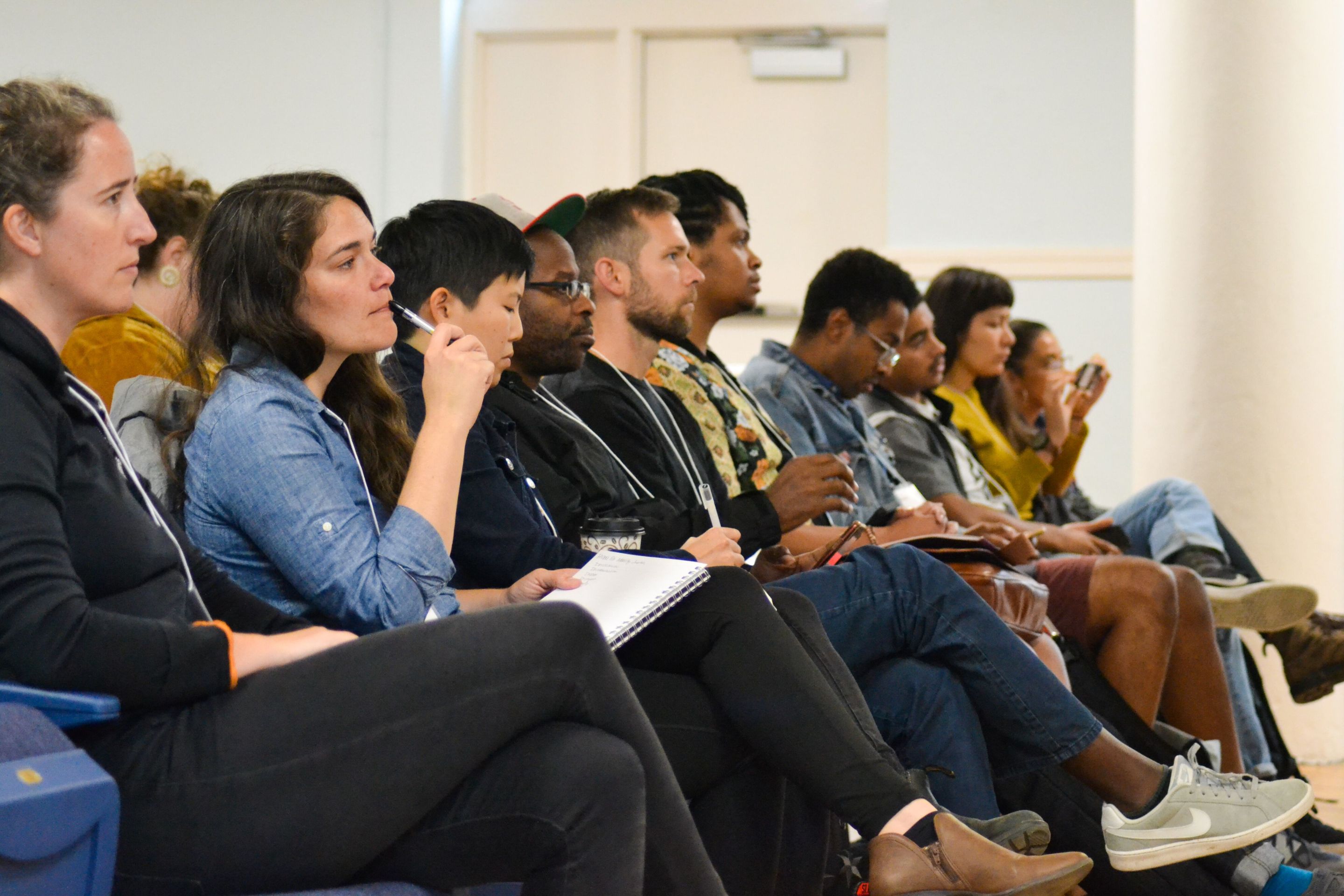As a Midwestern girl, I never thought I would be raving about a weekend in Durham, North Carolina, but here I am ready to discuss the magic of Untokening 2019.
The fourth annual Untokening convening took place in the historic southern city the weekend of October 4-6. Untokening is a multiracial collective that centers the lived experiences of marginalized communities to address mobility justice and equity. Ever year, core national organizers with local residents and organizers put together a convening in a different city highlighting local mobility and transportation challenges through a racial and social justice lens. Kudos to the local Durham team for the work that went into making it happen.
This was my third Untokening (the first two I attended were in Los Angeles and Detroit) and it was just as special as the other two. After each convening, I have walked away with some dominant themes and ideas. The LA convening kept me thinking critically about the intersection of housing displacement and transportation, particularly as South LA residents worry about gentrification associated with the new LA Metro Crenshaw/LAX line. The convening in Detroit inspired conversations about the bus system and who is served by expanded transit offerings around downtown.
Durham left me thinking about the people and community needed to do the kind of work that centers these stories and issues. I came in this year wanting less to walk away with tangible facts or data and more to sit and experience the company of such a diverse group of people. The people that Untokening brings together are at the core of its magic and widespread impact.
The sessions this year were as diverse and interesting as past years. Some of these included a conversation about racial equity with the Oakland Department of Transportation; a conversation about mobility and advocacy with the Atlanta Bicycle Coalition, and even a Walk/anda placemaking mobile experience in downtown Durham. There were so many fruitful and engaging activities and conversations during that weekend. Each session allowed me to listen to varying experiences about mobility justice in other cities, particularly from the perspectives of Black residents and other people of color. I learned about the work of Atlanta residents and organizers to push for policy changes on high-injury roadways, such as Cascade Avenue. I was in a session where we discussed the highway removal movement in Boston and its implications for today. There were so many moments of connection from all the issues presenters and attendees reflected on.
As our conference ended, I tried to put into words what I felt. I don’t think any other word captures it as much as the feeling of being affirmed. Oftentimes Black and indigenous people of color (BIPOC) express a feeling of being tokenized and undervalued in transportation or mobility advocacy. Speaking for myself, it is often difficult to see myself reflected in conversations whether it be because of the overwhelming focus on criminalization in transit enforcement, or the dominant voices that frame how we approach these issues.
For transportation professionals, advocates, and activists of color, feeling affirmed and validated in our work is critical to remaining in the work and being able to enact changes that will benefit our communities. If we are always spending time trying to be valued, it’s time we aren’t spending doing other important work.
This year, I have been in spaces that both validated and invalidated me. Being a part of the Transit Center Women Changing Transit Mentorship Program has been one of the more transformational groups I have been a part of. The women I have met through the program have offered some of the more affirmative feedback and energy I have ever experienced. Seeing other women of color in leadership positions throughout the transportation sector has created examples of leaders I didn’t have before. I am forever grateful for the community I have been able to build alongside my peers and mentors.
Untokening offers a similar feeling of community for me and for others.

As I scrolled through the #UntokeningDurham hashtag on Twitter, I saw reflections from attendees that reinforced this feeling:
“Untokening always makes me feel less alone.”
"Each time I meet amazing, inspiring people and leave seeing my work and myself differently. I feel restored. “
“Untokening as process is also [about] building a community of care and support in our collective works towards #mobilityjustice.”
In our closing day session, Jesi Harris of People for Mobility Justice facilitated powerful group activities that challenged us to consider different ways oppression shows up in our work. In my group, I heard the resounding feeling of needing to create more safe spaces for each other, particularly women of color.
Spaces like Untokening are invaluable and I hope to see it continue to grow. I hope it inspires others to create more spaces. We need to build more spaces where diverse views form the basis of how we look at streets infrastructure, where the experiences of Black residents, people of color, immigrants, and other marginalized residents are centered. We need to transform existing spaces where there is often no accountability for inappropriate and tokenizing behavior and comments. I am walking away from Untokening with a renewed commitment and motivation to work with others to figure out what new spaces can look like and in what ways we need to challenge existing spaces.
The streets are for all of us and Untokening reminds me of the people I need to always have in mind as I do this work. When I do this work, I think of my mom who walks everywhere and has to cross busy streets where cars often don’t have respect for her pace. I think of my brother who can easily be criminalized by police based on what he looks like and where he lives, and it reinforces my feeling that policing our streets is not the answer to safety. When I think of the people I want to center, it makes it easy to know where my values lie as I do this work.
There are critical challenges facing our country and world; transportation and mobility justice work has the potential to play a big role in shifting things for the better if we are able to do it right, if we center the right people, and we decolonize our work.





